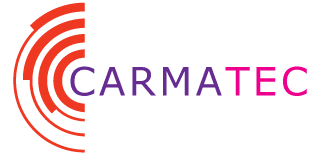In today’s fast-paced digital world, ensuring the optimal performance of applications is crucial. With businesses relying on applications for critical operations, monitoring tools have become indispensable. These tools help detect performance issues, optimize resources, and ensure a seamless user experience.
This article explores the 20 best application monitoring tools of 2025, providing a detailed breakdown of their features, benefits, and ideal use cases.
What Are Monitoring Tools?
Monitoring tools are software solutions designed to track, analyze, and report the performance, availability, and health of IT systems, networks, applications, databases, and infrastructure components. These tools help organizations ensure optimal system functionality, detect potential issues early, and maintain high performance.
Types of Monitoring Tools
- Application Performance Monitoring (APM) – Tracks the performance of applications, detects slowdowns, and provides insights for optimization. (e.g., New Relic, Dynatrace, AppDynamics)
- Network Monitoring – Monitors network traffic, bandwidth usage, and connectivity issues. (e.g., Nagios, SolarWinds, PRTG Network Monitor)
- Server Monitoring – Checks server health, CPU usage, memory, and disk space. (e.g., Datadog, Zabbix, ManageEngine OpManager)
- Database Monitoring – Tracks database performance, query execution time, and potential failures. (e.g., Redgate, SolarWinds Database Performance Analyzer)
- Cloud Monitoring – Monitors cloud-based services and infrastructure for performance and cost optimization. (e.g., AWS CloudWatch, Google Cloud Operations Suite)
- Log Monitoring – Analyzes logs to detect security threats, errors, and anomalies. (e.g., Splunk, ELK Stack, Graylog)
Why Are Monitoring Tools Important?
- Improve system performance by identifying bottlenecks.
- Minimize downtime through proactive issue detection.
- Enhance security by identifying vulnerabilities and suspicious activities.
- Ensure compliance with IT policies and regulations.
- Optimize resources for cost-effective operations.
What are the 20 Best Application Monitoring Tools of 2025?
1. Datadog
Datadog is a comprehensive monitoring tool designed for cloud-scale applications. It provides real-time performance tracking and integrates seamlessly with cloud platforms like AWS, Azure, and Google Cloud.
Key Features:
- Full-stack monitoring (infrastructure, logs, and APM)
- AI-driven anomaly detection
- Real-time dashboards and alerts
- Seamless integration with DevOps tools
Best For: Cloud-native applications, DevOps teams, and enterprises managing hybrid environments.
2. New Relic
New Relic is an all-in-one observability platform offering deep application monitoring, infrastructure analysis, and AIOps capabilities.
Key Features:
- Application Performance Monitoring (APM) with distributed tracing
- AI-powered incident detection and response
- Customizable dashboards for real-time analytics
- Infrastructure monitoring and Kubernetes support
Best For: Enterprises and SaaS businesses seeking detailed insights into application performance.
3. AppDynamics
Owned by Cisco, AppDynamics provides AI-powered monitoring to optimize business performance and improve application reliability.
Key Features:
- Business transaction monitoring
- AI-driven anomaly detection
- Cloud and on-premise monitoring
- Automated root cause analysis
Best For: Large enterprises and IT teams focused on business intelligence and performance optimization.
4. Dynatrace
Dynatrace offers AI-powered monitoring solutions that deliver real-time insights into application performance and security.
Key Features:
- AI-driven observability and automation
- Code-level performance monitoring
- Kubernetes and multi-cloud support
- Digital experience monitoring
Best For: Enterprises leveraging AI for predictive monitoring and analytics.
5. Splunk Observability Cloud
Splunk Observability Cloud is a powerful monitoring and analytics solution that helps businesses detect and resolve performance issues quickly.
Key Features:
- Real-time monitoring with AI-powered insights
- Full-stack observability (APM, logs, and infrastructure)
- Advanced security and compliance features
- Scalable for cloud and hybrid environments
Best For: Security-focused organizations and DevOps teams managing large-scale infrastructures.
6. SolarWinds AppOptics
SolarWinds AppOptics is a user-friendly monitoring solution offering deep performance insights across applications and infrastructure.
Key Features:
- Unified application and infrastructure monitoring
- Distributed tracing for microservices
- Pre-configured and customizable dashboards
- Cost-effective for small to mid-sized businesses
Best For: SMBs and IT teams looking for a simple yet powerful monitoring tool.
7. Prometheus
Prometheus is an open-source monitoring system widely used for cloud-native applications and Kubernetes environments.
Key Features:
- High-dimensional time-series data storage
- Built-in query language (PromQL) for analytics
- Scalable and highly available architecture
- Native Kubernetes support
Best For: DevOps teams using Kubernetes and cloud-based infrastructure.
8. Grafana
Grafana is an open-source observability platform that provides stunning visualization and analytics capabilities.
Key Features:
- Customizable dashboards with real-time analytics
- Integrates with Prometheus, Loki, and other data sources
- Supports multiple cloud and on-prem solutions
- Alerting system for proactive monitoring
Best For: Developers and IT professionals looking for flexible and highly visual monitoring solutions.
9. Instana
Instana is an AI-powered application monitoring tool that automates performance analysis for cloud-native applications.
Key Features:
- Real-time application performance insights
- Auto-discovery of application components
- AI-powered root cause analysis
- Seamless Kubernetes integration
Best For: Enterprises running complex, distributed applications.
10. LogicMonitor
LogicMonitor provides automated, agentless monitoring for cloud and on-premise infrastructure.
Key Features:
- AIOps-driven alerts and insights
- Cloud, hybrid, and on-prem monitoring
- Network performance analytics
- Automated log analysis
Best For: IT teams needing end-to-end infrastructure monitoring with predictive analytics.
11. Site24x7
Site24x7 is a cost-effective monitoring solution designed for IT teams managing web applications and servers.
Key Features:
- Application and website performance monitoring
- Synthetic transaction monitoring
- Real-time alerting and reporting
- Mobile app for on-the-go monitoring
Best For: SMBs and IT teams managing web applications.
12. Nagios
Nagios is an open-source monitoring solution that provides infrastructure and application performance tracking.
Key Features:
- Monitors network, servers, and applications
- Extensive plugin library for custom monitoring
- Alerting and event management
- On-premise and hybrid environment support
Best For: IT administrators looking for a customizable and open-source monitoring solution.
13. Raygun
Raygun is a robust monitoring tool focused on error tracking and crash reporting for web and mobile applications.
Key Features:
- Real-time error and performance monitoring
- User experience analytics
- Root cause analysis for fast issue resolution
- Integration with DevOps and CI/CD tools
Best For: Developers and QA teams optimizing application performance.
14. Elastic Observability
Elastic Observability combines logs, metrics, and APM to provide full-stack application monitoring.
Key Features:
- Centralized log and metrics analysis
- Machine learning for anomaly detection
- Open-source and highly scalable
- Integrates with Elasticsearch and Kibana
Best For: Enterprises using the Elastic Stack for monitoring and analytics.
15. ThousandEyes
ThousandEyes, a Cisco company, provides network and application performance monitoring for enterprises.
Key Features:
- End-to-end network visibility
- Digital experience monitoring
- Cloud and hybrid infrastructure support
- AI-driven performance analytics
Best For: Large organizations with global IT infrastructures.
16. ManageEngine Applications Manager
ManageEngine’s Applications Manager is a powerful tool for real-time performance monitoring.
Key Features:
- Application and database performance tracking
- Synthetic transaction monitoring
- AI-powered anomaly detection
- Integration with ITSM tools
Best For: IT administrators managing multiple applications and databases.
17. Sematext
Sematext offers a cloud-based monitoring platform with real-time application and log management.
Key Features:
- APM, log management, and infrastructure monitoring
- AI-driven anomaly detection
- Distributed tracing for microservices
- Integration with DevOps workflows
Best For: Cloud-native businesses needing scalable observability.
18. Zabbix
Zabbix is an enterprise-grade open-source monitoring solution.
Key Features:
- Network, server, and cloud monitoring
- AI-based forecasting and root cause analysis
- Agentless monitoring capabilities
- Highly customizable dashboards
Best For: Enterprises seeking an open-source, scalable monitoring tool.
19. Honeycomb
Honeycomb is designed for observability in complex distributed systems.
Key Features:
- High-cardinality event tracing
- Custom analytics and dashboards
- AI-powered anomaly detection
- Scalable for microservices architectures
Best For: DevOps teams managing high-scale distributed applications.
20. Coralogix
Coralogix provides AI-driven log analytics and monitoring solutions.
Key Features:
- Automated pattern recognition
- Real-time log and metrics analysis
- Security and compliance monitoring
- Cloud-native support
Best For: Businesses focused on security and compliance monitoring.
Conclusion
Choosing the right application monitoring tool depends on your organization’s specific needs. Whether you require open-source flexibility, AI-driven analytics, or enterprise-grade observability, the tools listed above offer diverse solutions to enhance application performance and user experience. Carmatec delivers tailored application monitoring solutions that ensure peak performance, minimize downtime, and provide real-time insights, helping businesses stay ahead in today’s fast-paced digital landscape.
Frequently Asked Questions
1. What is an application monitoring tool?
An application monitoring tool is a software solution that helps track the performance, availability, and overall health of applications in real-time. It provides insights into application behavior, detects performance bottlenecks, and alerts teams about potential issues before they impact users.
2. Why is application monitoring important?
Application monitoring is crucial for ensuring smooth performance, minimizing downtime, and improving user experience. It helps businesses identify and resolve issues quickly, optimize system resources, enhance security, and maintain compliance with service level agreements (SLAs).
3. How do I choose the best application monitoring tool for my business?
To choose the best application monitoring tool, consider factors such as ease of use, scalability, integration capabilities, real-time monitoring features, automation, reporting, and cost. The right tool should align with your business needs, whether for cloud-based applications, microservices, or enterprise systems.
4. What are the key features to look for in an application monitoring tool?
Essential features of an application monitoring tool include real-time performance tracking, error detection, log management, automated alerts, AI-driven analytics, API monitoring, cloud compatibility, and user experience insights.
5. Are there free or open-source application monitoring tools available?
Yes, several free and open-source application monitoring tools are available, such as Prometheus, Grafana, and Zabbix. These tools offer robust monitoring features, but they may require technical expertise to set up and manage compared to paid enterprise solutions. To know more connect with Carmatec.













